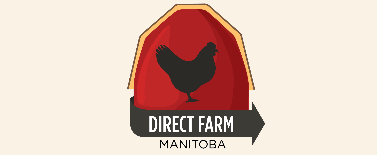Returning to Normal on a Full Earth
 Thursday, June 25, 2020 at 8:43PM
Thursday, June 25, 2020 at 8:43PM by Eric Rempel
 Capture of the Atlantic northwest cod stock in million tonnesIt could be said that we are consumers, all of us. We consume food, but we also consume many other things, some necessary, some discretionary. Most of the time we consume conscientiously, at least when conscientiously is defined as “whether you can afford it.” but when conscientious consumption is defined in terms of its affect on the planet, most of our consumption is unconscious – we don’t give thought to how our consumption affects the planet.
Capture of the Atlantic northwest cod stock in million tonnesIt could be said that we are consumers, all of us. We consume food, but we also consume many other things, some necessary, some discretionary. Most of the time we consume conscientiously, at least when conscientiously is defined as “whether you can afford it.” but when conscientious consumption is defined in terms of its affect on the planet, most of our consumption is unconscious – we don’t give thought to how our consumption affects the planet.
But it should! We should be concsious of how our consumption affects the planet. Furthermore, how our consumption affects the planet is determined significantly by whether the world we live in is empty or full. The COVID 19 lock down has helped us see this.
What is meant by a full or empty world is best understood when we consider fisheries. In an empty ocean, there are few boats and many fish. In this situation the rational way to increase the fish harvest is to increase the number of boats and improve the fishing technology. But at some point the ocean fills up with boats. If the number of boats continues to increase or if the technology continues to improve, the ocean will be over-fished and fish stocks will decrease. This is not sustainable. We know what has occurred with the cod fishery off Newfoundland.
Consumption is not bad in itself. Consumption in an empty world is largely good. It increases welfare. Indiscriminate consumption in a full world is bad because it results in a depletion of whatever stock we are consuming.
Unfortunately we have come to a point where we measure the health of our economy by GDP. This is dangerously misleading because GDP is a measure of consumption, making no distingtion between good and bad consumption. Applauding GDP, as we do, suggests that the more we consume the healthier our economy. This probably was the case when the world was empty, but it is no longer empty. It is now full.
What the COVID 19 lock-down has done is show us that we can live remarkably well even as we consume less. What the lock-down has shown us is that our economy can tolerate a large number of unemployed people provided there are government transfer payments.
Not all consumption is bad. The consumption of art and music, of haircuts and body massage, of sports events and concerts is fine because it consumes human talent. We have as much human talent as we have. Travel, on the other hand, is consumption we need to discourage. Travel consumes energy and contributes to the depletion of our oil stock and to climate change.
If we want to come out of the COVID 19 lock-down richer – as we return to higher levels of consumption, we need to distinguish between consumption appropriate to a full earth and consumption that does not belong on a full earth. This means that we should be encouraging the arts, haircuts, meals out and other meaningful leisure. We need to be grateful to our government that through its support payments most of our artists and restaurateurs are still around, ready to serve us as we become ready.
But the same thinking should not apply to the travel industry, indeed to many aspects of globalization that has resulted from cheap travel and cheap transportation. We need to continue to discourage travel (and similar activity), not because it leads to the transmission of COVID 19, but because it does not belong in a full earth.
Were we to embrace such a vision, future generations will thank us.


